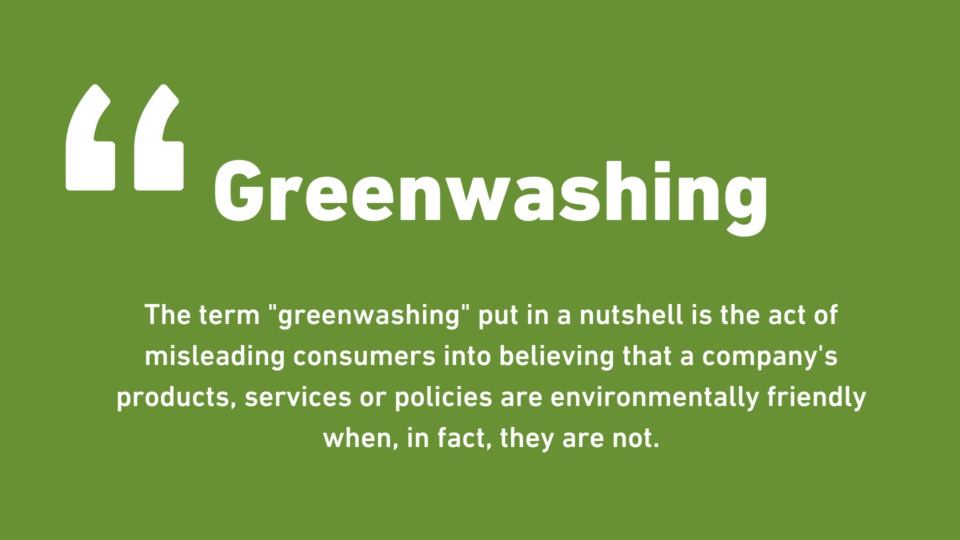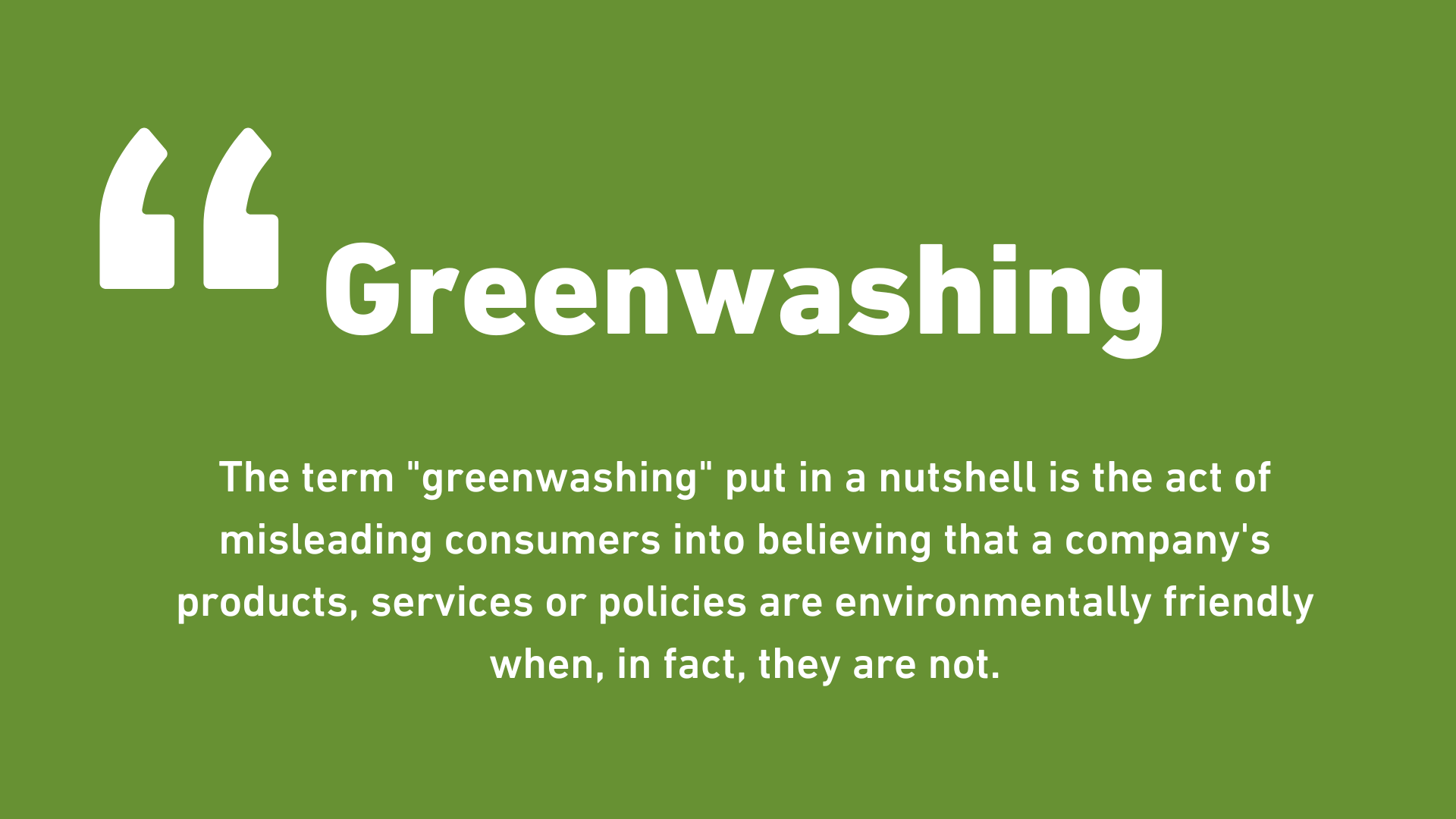
In the realm of sustainability, where actions speak louder than words, greenwashing emerges as a deceptive tactic employed by businesses to cloak their products or practices as eco-friendly, while in reality, they contribute little or nothing to environmental preservation.
The term “greenwashing” put in a nutshell is the act of misleading consumers into believing that a company’s products, services or policies are environmentally friendly when, in fact, they are not.
This deceptive practice undermines genuine efforts towards sustainability and hinders progress in combating climate change.
Understanding Greenwashing
Greenwashing is not a new phenomenon. It has been around for decades, gaining prominence as environmental consciousness among consumers and stakeholders continues to rise.
By exploiting this growing concern, companies attempt to capitalize on the green trend, often resorting to misleading marketing tactics that exaggerate their environmental credentials.
Such strategies aim to enhance brand reputation and attract environmentally conscious consumers, thereby boosting sales and profitability.
Recognizing Greenwashing
Recognizing greenwashing requires vigilance and critical thinking. Some common tactics employed by businesses include:
- Vague Terminology: Companies may use vague terms such as “natural” or “eco-friendly” without providing concrete evidence or certifications to support their claims.
- Irrelevant Certifications: Displaying certifications that are unrelated to the product’s environmental impact or using self-created labels without third-party verification.
- Misleading Imagery: Utilizing images or symbols of nature and sustainability to create a false perception of environmental responsibility.
- Hidden Trade-offs: Highlighting a product’s eco-friendly features while downplaying or ignoring its negative environmental consequences elsewhere in the lifecycle.
The Impact of Greenwashing on Sustainability
Greenwashing undermines trust in the market and erodes consumer confidence in genuinely sustainable products and practices. It leads to a false sense of achievement, where consumers believe they are making environmentally conscious choices when, in fact, they are not.
Moreover, greenwashing perpetuates unsustainable consumption patterns, diverting attention and resources away from genuine sustainability initiatives.
Ultimately, it slows down progress towards achieving global sustainability goals and combating climate change.
Greenwashing in Solar Energy
In the solar energy sector, greenwashing is a pertinent issue, given the increasing demand for renewable energy solutions. While solar energy offers significant environmental benefits compared to fossil fuels, not all solar products or companies uphold genuine sustainability practices.
Some manufacturers may engage in greenwashing by overstating the environmental benefits of their solar products or concealing harmful practices in their production processes.
Leading the Way: Genuine Sustainability in the marketplace
Amidst the prevalence of greenwashing, there are companies that prioritize transparency and genuine sustainability.
As one of these businesses we adhere to rigorous certification standards and engage in sustainable manufacturing practices, such as utilizing recycled materials and reducing energy consumption in our production facilities. We open ourselves up to regular and transparent audits and measure and report on our scope 1, 2 & 3 emissions yearly.
Most notably we communicate clearly with our markets the environmental benefits that our products offer. We are a solar first business and have been since 2011, reducing carbon is the sole reason we exist. We are not attempting to mislead by putting a token solar panel on a product in an attempt to pass it off as sustainable.
Since launching our first off-grid solar lighting tower in 2016, in partnership with our customers, we have saved over 32,086 tons of CO2e and mitigated the use of diesel by over 10.5 million liters. So, when we communicate our vision is to power the world’s off-grid energy needs with smart, clean, renewable technology…we really mean it.
Combating Greenwashing
To combat greenwashing, stakeholders must prioritize transparency, accountability, and evidence-based claims.
We must demand thorough verification of environmental claims, adoption of third-party certifications, and adherence to recognized sustainability standards and audits.
Moreover, more education and awareness campaigns can empower consumers and industry professionals to discern genuine sustainability efforts from deceptive greenwashing tactics. Empowering sustainability managers with businesses to have a great influence on purchasing and strategic supply chain decisions will help reduce the prevalence of businesses being misled by ambiguous narratives regarding a product’s sustainable credentials.
Conclusion
As sustainability continues to shape consumer preferences and business practices, combating greenwashing becomes imperative. In both the solar energy and wider sectors; transparency, accountability, and genuine commitment to sustainability are paramount.
By discerning greenwashing tactics and supporting companies like ours that uphold authentic environmental values, individuals and organizations can collectively drive meaningful progress towards a more sustainable future.













![The Ultimate Guide to Choosing Tower Lights 2025 Prolectric ProRXM Solar Tower Light Highways [Day]](https://prolectric.co.uk/wp-content/uploads/2024/04/Pro-RXM-Highways-Day-scaled.jpg)
